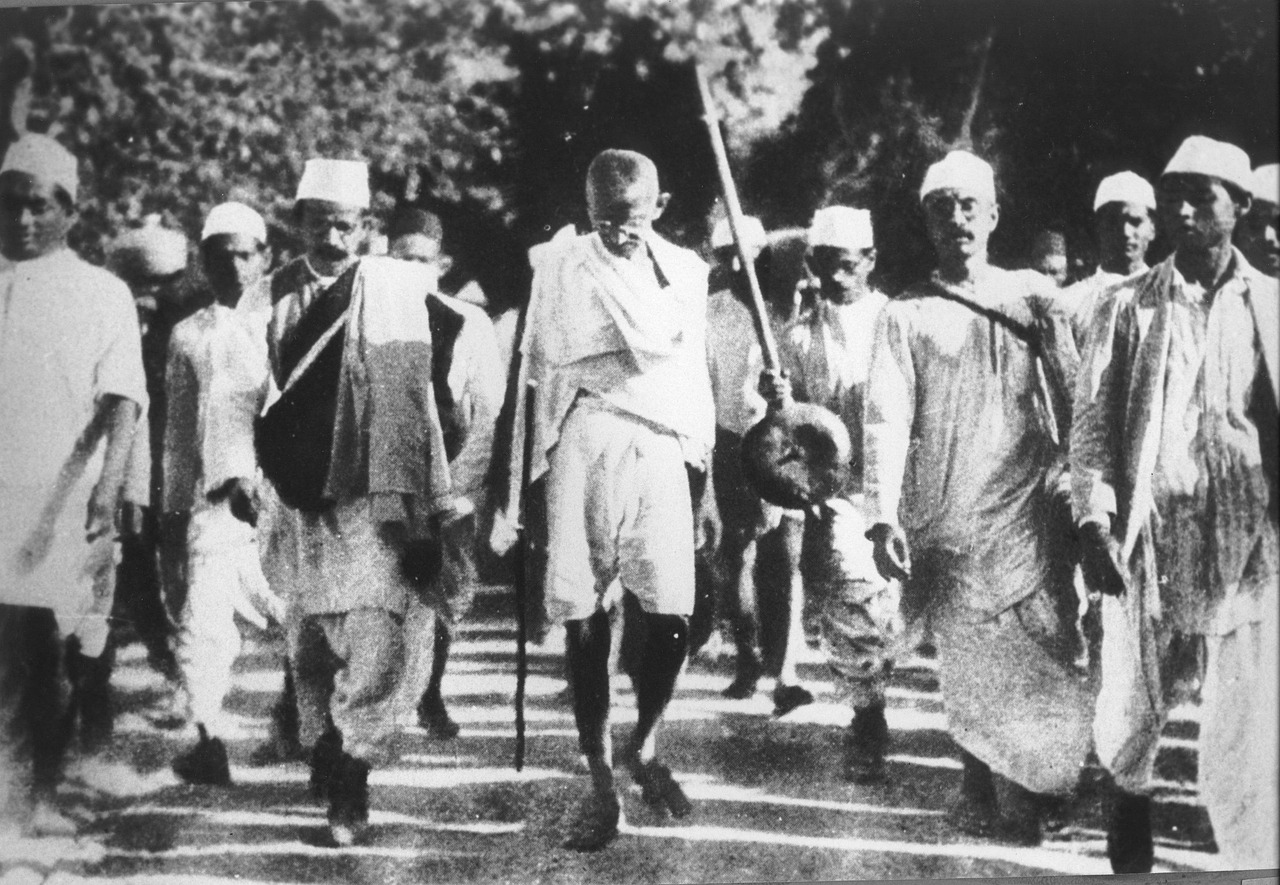Below are the ORIGINAL, CORRECT versions of the editing challenges. Compare them to to the corrections you made.
Keep in mind there’s often more than one way to correct the same mistake. Just because your version is not identical to mine does not necessarily mean it is wrong. E-mail me with any doubts or questions – the first three consultations are FREE!
All editing challenges are adapted from https://www.dailytoday.com or https://www.history.com/this-day-in-history (2022-2024).

Holidays this Month: The Best Medicine
Does winter have you down? Laugh a little – it’s almost done! That is no doubt one of many reasons why March is also known as International Mirth Month. Remember: humorists are artists, too. Don’t be ashamed to pick up a comic book as you “March into literacy” as part of National Reading Month (e-books are OK, too). Between Dr. Seuss and budding flowers, color therapy is all around us. It’s hard not to be optimistic this time of the year!

Holidays this Month: Crafty Leprechauns
More people of Irish ancestry live in the United States than in Ireland itself, so it’s no wonder that St. Patrick’s Day is so popular here. Bring an umbrella, sing traditional songs with your children, and dress to impress this Mad for Plaid Month (although that’s technically more Scottish). It’s also Greek-American Heritage Month, so see if you can find a corned beef and cabbage gyro. Stay creative throughout National Craft Month by learning to crochet or playing the recorder.

Holidays this Month: Shamrock Sage
Take a break from your e-books to save your vision and listen up! Do you want to join the honor society this month? March is great for cleaning up your IRS act, studying up on credit scores, gardening, nature, and ecology, and expanding girls’ horizons in science and engineering. Middle Level Education Month emphasizes the academic and psychological development that occurs during early adolescence. Social workers play an important role in educating the public too, as does the Red Cross.

On This Day: March 1
National March First Day celebrates family breakthrough milestones, like being the first to graduate from college. It’s never too late to achieve your goals: babies sleep and if you’re retired, you can always get “refired” with passion. Seek advice during International Ideas Month. It’s also National Dadgum That’s Good Day, so enjoy great food, get some music therapy, and, if that doesn’t work, consider a solo vacation, complete with hotel slippers and seagrass – no bad service, no discrimination, all smiles!
In the United States, we normally associate witches with October (and then only for fun), but our most famous witch hunt began March 1, 1692, in Salem, Massachusetts. Sarah Goode, Sarah Osborne, and Tituba, a slave from Barbados, were all charged for supernatural attacks against local girls. Suddenly, everyone started accusing their neighbors, including several men and one four-year-old child. Nineteen individuals were executed before the governor finally stepped in and stopped the madness that October. Some cultures around the world still believe in witchcraft. You may visit them if you join the Peace Corps, which was also founded on March 1, 1961. Since then, nearly a quarter million Americans have volunteered to work on development projects in 142 nations.

On This Day: March 2
March 2 is World Teen Mental Health Day, so what are some ways to beat the blues? Binging on comfort food, like Egg McMuffins and banana cream pie, provides only a temporary boost. Instead, how about rescuing a cat or cleaning out the garage for National Old Stuff Day? National Read Across America Day is also healthy for the mind. It’s very hard to stay depressed while reading Dr. Seuss: “Why fit in when you were born to stand out?”
Although owning slaves remained legal in the U.S. until 1865, Congress abolished the African slave trade on March 2, 1807, preventing the importation of any new “stock.” Despite seeming like a step in the right direction, however, the four million blacks already here proved more than enough to meet demand. Things hadn’t improved much for African Americans by 1955 either when, on this same day, fifteen-year-old Claudette Colvin was arrested for not giving up her seat on the bus to a white man, nine months before Rosa Parks. Other great acts of defiance this day include Texas declaring its independence from Mexico in 1836, Congress granting Puerto Ricans citizenship in 1917, and Pioneer 10 launching to explore Jupiter in 1972.

On This Day: March 3
“Oh say, can you see?” “The Star-Spangled Banner” originated as an 1814 poem by Francis Scott Key about the night the British unsuccessfully attacked Baltimore, Maryland. Later set to music, it continued to grow in popularity until finally becoming our official national anthem on March 3, 1931. Poor Helen Keller, both blind and deaf, would never hear that inspiring tune, but she received an even greater gift on this same day in 1887 when Anne Sullivan, entered her life and taught her how to use a special kind of sign language. Keller went on to become the first deafblind person to earn a bachelor’s degree, and thereafter travelled the world campaigning for those with disabilities, woman’s suffrage, labor rights, and peace.

On This Day: March 4
The 1918 Influenza Pandemic may also be known as the Spanish Flu, but it most likely began in the U.S. Private Albert Gitchell was the first to report sick to the hospital at Fort Riley, Kansas, on March 4. Hundreds of fellow soldiers soon joined him. The disease then followed troops into the trenches of Europe, the perfect breeding ground for a mass epidemic. While World War I shocked the world with destruction on a previously inconceivable level – 20 million dead, including both soldiers and civilians – the flu killed 50 million worldwide in less than half the time. People started calling it the “Spanish Flu” because Spain was the only place where newspapers could report on the crisis freely.

On This Day: March 5
On March 5, 1963, Wham-O, the same company to introduce frisbees five years earlier, patented their next huge success, the hula hoop. Twenty-five million were sold in the first four months alone! History isn’t all fun and games, though. This was also the day of the 1770 Boston Massacre 1770. A few Boston locals, mad at the King, began harassing some soldiers guarding the Customs House. Gradually, a mob formed, growing wilder by the moment. Captain Thomas Preston told his men to hold steady, but one of the rifles went off and suddenly there were five bodies on the street. The incident was quickly blown out of proportion, hardening colonial resolve that King George and his soldiers had to go.

On This Day: March 6
Life can be a pain, so humans have developed a variety of ways to deal with discomfort throughout history. One of the most enduring has been acetylsalicylic acid, obtained from the bark of willow trees. Its active ingredient, salicin, was even Hippocrates’ go-to cure back in Ancient Greece. For many centuries, however, doctors couldn’t figure out how to alleviate its strong, bitter taste and tendency to damage stomachs. Bayer employees finally offered a better option when they patented their new “aspirin” on March 6, 1899, and it remains the #1 most common drug in American households today. In case you were wondering, the “a” comes from acetyl, “spir” from the spirea plant, and “in” is a common suffix for medicines.

On This Day: March 7
On March 7, 1876, Alexander Graham Bell received the first patent for a telephone, but was he really the first to come up with the idea? Bell got his start in life by using his father’s “Visible Speech” system to teach deaf children how to speak. He moved from Scotland to Boston during the 1870s, and there started tinkering with ideas to improve the telegraph. He was far from alone, however. Elisha Gray, an electrical engineer from Illinois, submitted his own patent paperwork just two hours after Bell! Antonio Meucci, an Italian immigrant living in New York, had filed a temporary application for his “sound telegraph” five years earlier, but simply didn’t have enough money to finish the process.

On This Day: March 8
Several icons of the modern age got their start on March 8. To start, there was the New York Stock Exchange in 1817, but then the Volkswagen bus rolled into town in 1950, a symbol of everything most stock brokers hate. They soon became infamous as havens for wandering hippies, who often repainted them in psychedelic colors and replaced the VW logo with a peace sign. A new era was heralded yet again on this same day in 1979 when Philips and Sony introduced their new joint venture: compact discs. They were designed with seventy-four minutes of storage to accommodate Beethoven’s 9th Symphony, but the first commercial CD ever released (in Japan) was Billy Joel’s “52nd Street.”

On This Day: March 9
Noticing that her daughter Barbara preferred playing with paper cutouts of adult women to toy baby dolls, Mattel co-founder Ruth Handler realized there was a market for playthings that empowered little girls to imagine their futures. The result – Barbie – premiered at a toy show in New York City on March 9, 1959. Aided by the fact that Mattel’s sponsorship of the “Mickey Mouse Club” made it the only toy company promoting its products on television, demand soared. Some feminists praised the doll for showcasing Barbie working a variety of jobs outside of the home, while others condemned the company for promoting unrealistic expectations of feminine beauty. Regardless, more than a billion dolls have been sold worldwide, still going strong.

On This Day: March 10
Cult-favorite television show “Buffy the Vampire Slayer” premiered on March 10, 1997, starring Sarah Michelle Gellar as a popular high school girl who lives a secret double life fighting undead monsters in her spare time. Sadly, this day marks a slew of other historical events maybe even too dark for Buffy. The people of Tibet revolted against Chinese rule on March 10, 1959, fearing a plot to kidnap their revered Dalai Lama. Tens of thousands of men, women, and children camping outside of temples in protest died and the Dalai Lama had no choice but to flee to India, where he remains to this day. Even worse, the 1945 U.S. firebombing of Tokyo on this date killed one hundred thousand.

On This Day: March 11
When you think of the U.S. Marine Corps, what do you imagine? Brawny men running fearlessly through smoke and explosions, guns blazing? Stealthy modern-day ninjas with high-tech suits sneaking unseen behind enemy lines? What if I asked you to imagine the Army Corps of Engineers? This lesser-known division, founded way back on March 11, 1779, rarely gets much recognition, but they do very important work. For example, the fortifications they constructed to protect New York Harbor during the War of 1812 not only saved the city, but today form the foundation for the Statue of Liberty. More recently, they helped rebuild New Orleans after Hurricane Katrina, and have done much to improve infrastructure in war-torn Afghanistan and Iran as well.

On This Day: March 12
In 1823, the Monroe Doctrine threatened the rest of the world to stay out of America. This sounded a little ridiculous at the time, coming from such a young, inconsequential nation, but no one was laughing on March 12, 1947, when atomic-bomb-dropper President Harry Truman declared an official end to U.S. isolationism. He would do whatever it took to stop the spread of communism, starting by sending troops to Greece and Turkey. So began the Cold War. Unfortunately for Mahatma Gandhi, the U.S.S.R. wasn’t interested in India, so they’d have to save their country themselves. On March 12, 1930, he began one of his most famous campaigns of non-violent protest: a 241-mile march to the sea to harvest salt illegally.

On This Day: March 13
Did you know that millions of dogs were trained to carry messages during World War I? Few received any recognition, besides Rin Tin Tin, a German Shepherd silent film star. After World War II broke out, the Army quickly realized its mistake in not having maintained a force of well-trained canines, so on March 13, 1942, they established a new war dog program, the “K-9” Corps. Interestingly, this is the same day in 1865 that a desperate Confederacy finally allowed black soldiers to serve in their own army. A few thousand did enlist, despite being treated worse than dogs. Finally, Uranus, a friend of Mickey’s pet Pluto, was discovered on this day in 1781, too, by German astronomer William Herschel.

On This Day: March 14
On March 14, 1942, at the Radcliffe Infirmary in Oxford, England, not just one, but two dying patients’ lives were saved by penicillin for the very first time. In the interest of preventing more deaths, the FBI debuted its “10 Most Wanted Fugitives” list on this same day in 1950. Since its debut, more than 150 dangerous criminals have been apprehended thanks to civilian tips. The first was William Nesbit, an ex-jewel thief apprehended in Minnesota four days later. Five days after that came, Orba Jackson, who had been hiding out in Oregon, working as a farmhand. Only ten women have ever made the list, the first being Ruth Eisemann-Schier, a kidnapper from Honduras, in 1968.

On This Day: March 15
No one expected much from Gaius Julius Caesar when he began his political career in 78 B.C., but, thanks to natural oratory talent and prowess in battle, he found himself commander of the entire eastern army within just a decade. Under his leadership, Rome conquered Gaul (modern-day France) and even some of Britannia before moving south into Egypt. In addition, the many reforms he helped pass ensured the people’s adoration. Nonetheless, the Senate gradually began to fear that he was becoming too powerful. A fortuneteller warned him to “beware the Ides of March,” but he didn’t listen. On March 15, 44 B.C., Caesar was murdered on the steps of the Senate to save the Republic, but it was too late.

On This Day: March 16
The Chinese were the first to develop military rockets with gunpowder in the 13th century. However, it was an American who made man’s dream of travelling into space possible by launching the very first liquid-fueled rocket on March 16, 1926. Inspired by H.G. Well’s science fiction classic War of the Worlds, Robert H. Goddard began applying his knowledge of physics and mathematics to work out the best kind of fuel to get humans into space. Most people thought he was crazy, even after he’d successfully proven that rockets could move in the airless vacuum of space. Sadly, Goddard died in 1945, decades before the first moonwalk, but none of it would have been possible without his genius and stubborn perseverance.

On This Day: March 17
Saint Patrick, originally Maewyn Succat, was born in Britannia during the late Roman Empire. He was captured by Irish raiders at 16 and worked as a slave for six years before managing to escape. Incredibly, he willingly returned in 432 to Christianize the pagans there. Today, he is honored as the patron saint of Ireland and a beloved symbol of all things Irish. The day of his death, March 17, is celebrated all over the world, but especially in the U.S. because for many years there were more Irish living in America than in Ireland itself. Besides, who doesn’t love a pint of green beer? If you don’t wear the color green, don’t be surprised if someone pinches you!

On This Day: March 18
For those of you struggling to keep all the events that led up to the Revolutionary War straight, it began with the Stamp Act in March 1765, Britain’s first attempt to tax colonists directly. Despite the name, it was a duty on all paper, from legal documents to playing cards. To the King’s credit, as Americans rallied under cries of “No taxation without representation!” he did repeal the act on March 18, 1766. Today, one of the world’s largest banks, Wells Fargo, continues to benefit from these cheaper paper prices. Did you know that they were founded on this same day in 1852 as a pony express shipping company during the California Gold Rush, transporting gold from coast to coast?

On This Day: March 19
March 19, 1953, marked the first time normal people all around the country could sit in their living rooms and watch MC (“Master of Ceremonies”) Bob Hope introduce their favorite movie stars and directors at the 25th Annual Academy Awards Ceremony. The Academy of Motion Picture Arts and Sciences was founded in 1927 to advance moviemaking technology and promote the industry. Two years later, it handed out its first “Oscar” award, called that because the little statue resembled the head librarian’s Uncle Oscar. Results had already been announced a few months earlier, but newspapers agreed to keep the average moviegoer guessing until the day after the event. Nowadays, the Academy uses a sealed envelope system for greater secrecy.

On This Day: March 20
According to top scholars of the day studying at the University of Paris, the “Black Death” was created on March 20, 1345, from a “triple conjunction of Saturn, Jupiter and Mars in the 40th degree of Aquarius.” Modern scientists argue that the Bubonic Plague was actually caused by bacteria spread by fleas on rats. The first confirmed case was in Mongolia around 1320. One variant killed 95% of those who caught it. The plague arrived in Europe in 1346, and by 1352 one third of the entire continent’s population had died – as many as 25 million. Most communities blamed religious minorities and turned to violence, making a bad situation worse. Thank goodness we know how to handle massive pandemics today!

On This Day: March 21
“Moondog” Alan Freed, a radio host in Cleveland, Ohio, was one of the earliest disc jockeys to embrace the new rhythm-and-blues music sweeping the nation – “rock and roll,” as he liked to call it. On March 21, 1952, he decided to try something no one else had ever done before: host a rock concert. Due to mass-counterfeiting, as many as 24,000 fans turned up at an arena built to hold just 10,000. The Moondog Coronation Ball quickly devolved into chaos and the police cancelled everything. On this same day, nine years later, another “Rock” – the infamous Alcatraz Prison in San Francisco Bay – closed its doors for the last time after three decades of confining some of America’s worst criminals.

On This Day: March 22
March 22 marked the first Masters golf tournament and Stanley Cup hockey playoffs in 1934 and 1894, respectively. The latter occurred exactly one year after the first women’s college basketball game, too. Sadly, women’s rights have taken much longer off court. The Equal Rights Amendment, prohibiting discrimination on the basis of sex, was originally proposed in 1923, but didn’t pass the United States’ Congress until (also) March 22, 1972. At that point, it needed to be ratified (approved) by three-fourths of the states before a set deadline in order to officially change the Constitution. It fell short by just three states. Many local regulations provide similar protection today, but female equality remains unprotected by national law here in the U.S.

On This Day: March 23
Whether you spell it O.K., ok, okay, or even okie dokie, people will understand you all over the world. How did that happen? The term first appeared in print in an article of The Boston Morning Post on March 23, 1839, as an abbreviation for oll korrect. Back in those days, teenagers didn’t have smartphones, so they misspelled phrases on purpose and used those abbreviations in daily conversation instead. Another example was KY, which stood for “no use” (know yuse). O.K. just so happened to also be the initials for presidential candidate Martin Van Buren, “Old Kinderhook.” His supporters adopted the abbreviation throughout his campaign and, later, his presidency, and this ensured its survival after the original fad faded out.

On This Day: March 24
When the giant tankship Exxon Valdez ran aground on a reef off the coast of Alaska on March 24, 1989, the resulting oil spill was devastating in more ways than one. Eleven million gallons of crude oil polluted over seven hundred miles of coastline, and hundreds of thousands of animals died. Thousands of volunteers flocked to join the cleanup effort, but it wasn’t nearly enough. Holding the Exxon Corporation responsible for their disaster was just as challenging. Captain Joseph Hazelwood received no punishment for his negligence because he had called the spill in and, under Alaskan law, that granted him immunity. The company itself was originally threatened with criminal penalties of $100 million, but ended up paying a mere fraction.

On This Day: March 26
Gerrymandering is the corrupt practice of politicians dividing states into election districts that make no sense, except to give their party an unfair advantage. Do you have any idea where the term came from? Governor Elbridge Gerry of Massachusetts was the first to try concentrating Federalist votes this way in 1812. His redrawn maps looked more like a twisted beast than a group of city blocks and, in response, the Boston Gazette published a cartoon on March 26 with the caption: “Salamander! Call it a Gerrymander!” Also on this day, in 1941, manned torpedoes redrew the maps of what was possible in naval warfare when first employed by the Italians, and Vladimir Putin was elected President of Russia in 2000.

On This Day: March 27
If you’re ever traveling near Washington D.C. this time of year, consider joining the throngs of tourists who gather to see cherry trees blossoming. It’s a stunning sight, made possible due to a gift of three thousand saplings from Japan on March 27, 1912. After World War II, cuttings were sent back to Tokyo to help restore the original groves devastated by American bombs. Marlon Brando started his own war in Hollywood on this same day in 1973 by declining his Oscar for Best Actor as a way to protest the treatment of Native Americans in film. March 26, 1964, also marked the biggest earthquake to hit North America, measuring 9.2 on the Richter scale and injuring thousands in Alaska.

On This Day: March 28
On March 28, 1939, millions celebrated as the Spanish Civil War finally ended. One million had perished, however, and fifty thousand more would be murdered under Francisco Franco’s repressive dictatorship. The Three Mile Island Nuclear Disaster, also on March 28, 1979, sounds scary, but wasn’t nearly as bad. Burst pressure valves spewed contaminated cooling water, and the core began to overheat. A hydrogen gas bubble further raised concerns that the core might explode. Panic spread and 100,000 people fled the Pennsylvania capital until President Jimmy Carter himself, a trained nuclear engineer, went in person to sort things out. No one died directly, but plant workers suffered a 64% increase in cancer and America’s love affair with nuclear power was over.

On This Day: March 29
The Vietnam War had raged for nearly twenty years by the time U.S. forces finally agreed to withdraw in early 1973, leaving the North and South to work their own problems out. The last combat troops departed on March 29, and our former allies were quickly overrun. The Communists had won. Amidst all this tragedy, the world was excited to finally receive some positive news from neighboring China exactly one year later. A farmer’s discovery of pottery fragments while digging a well in Xian Province led to the unearthing of one of the greatest archaeological finds of all time: the Terracotta Warriors. These 8,000 life-sized statues had guarded China’s first emperor, Qin Shi Huang, faithfully for over two thousand years.

On This Day: March 30
Few took the Vikings particularly seriously until Easter Sunday, March 29, 845, when they shocked everyone by rowing nearly five hundred miles inland to besiege and plunder the great city of Paris. No one was safe. A thousand years later, many felt the same way about Napoleon Bonaparte, but on March 30, 1814, the unified forces of Europe marched similarly triumphantly into Paris to put an end to his empire building. That day also marks a failed 1981 assassination attempt to take out U.S. President Ronald Reagan by a crazy homeless drifter. Furthermore, it’s the anniversary of the 15th Amendment, adopted in 1870, which grants all African American men – though specifically not women – the right to vote.

On This Day: March 31
On March 31, 1854, Commodore Matthew Perry achieved the impossible by convincing Japan to open up to U.S. trade after 171 years of total (and poorly-timed) isolation. France, on the other hand, was excited to invite the rest of the world to celebrate their one-hundredth anniversary of the French Revolution in 1889, but they needed a show-stopper. Cue Gustave Eiffel, the mastermind behind the recently-erected Statue of Liberty. His plan for an open-lattice wrought-iron monument rising almost 1,000 feet above the Parisian skyline – the tallest man-made structure heretofore built – was exactly what the government was looking for. The Eiffel Tower opened publicly on March 31 (as well) and was repurposed after the invention of radio transmission a decade later.